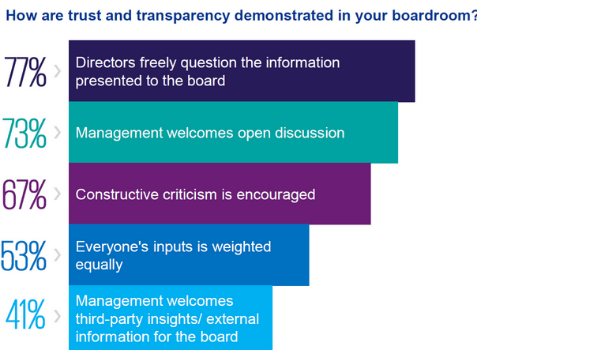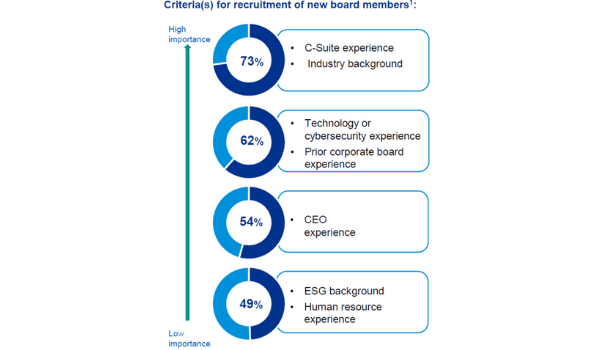Things seem to be definitely looking up in terms of diverse views, trust and transparency in boardrooms across the globe. In India, diversity in the boardrooms is improving mainly because of regulatory pressures, demand by stakeholders and increased focus on environmental, social and governance (ESG) principles.
THE DIRECTOR PULSE SURVEY – 2021 was launched by KPMG member firms worldwide to obtain their perspective on inclusion and diversity, reasons and criteria for recruitment of new board members, key concerns, trust and transparency. It covered 707 global board members of which 81 were from India.
With boards expanding and taking on members from diverse backgrounds and skills, a culture of inclusion is being created, which is capable of extracting ideas, opinions and concerns of all board members.
Reasons for improvement in Indian boardrooms
The improvements have come about because there have been positive changes in leadership composition. Also, corporate governance polices and regulations have evolved. Additionally, organisations have successfully adapted remote and hybrid modes of working.
Proof of improvement
Trust and transparency are clearly demonstrated in the boardrooms, because 77 per cent leaders in India admit that directors freely question the information presented to the board. A significant 73 per cent of the respondents say management welcomes open discussions. About 67 per cent feel that constructive criticism is encouraged, while 53 per cent feel that inputs of everyone are given equal weightage. About 41 per cent admit that the management welcomes third-party insights or external information for the board.

Quality of questions in boardrooms
When asked to describe the observations and questions offered by the board during discussions of strategic organisational issues, about 40 per cent of the respondents in India felt they are probing, insightful and add context, while 16 per cent felt they are sometimes probing and sometimes routine or mechanical.
A good 70 per cent respondents, globally, felt current board rooms enable insightful discussions on strategic issues. More than half the respondents, globally, are concerned that lack of diversity and inclusion in the boardrooms will affect quality of decisions made, identification of key focus areas, addressing of stakeholder concerns.

Challenges and opportunities
Given the social justice movement, boards across the world are faced with new challenges as well as opportunities. To gain the trust of their stakeholders and the public, they should include underserved communities, work towards reducing or doing away with eliminating gender pay gaps, and put in place grievance redressal policies.
Boards can ensure inclusiveness in their culture by providing members the liberty to express themselves and present their opinions. They should facilitate open, fearless and meaningful discussions and foster a culture of empathy and understanding.
In India, one third of the respondents admit that they are pressurised by investors and stakeholders to hire directors with diverse skills and backgrounds.
About 73 per cent of the respondents in India have rated C-suite experience and industry background as significant factors in director recruitment. There is a growing demand for directors with technology or cyber security experience. Although directors feel that diversity is valued in the current boardroom, they foresee moderate changes in terms of diversity over the next few years.

Majority of the directors(9 out of 10) believe that diversity plays a relevant role in creating a positive impact on the company as well as the society.
Almost 60 per cent of directors in India are concerned about identification of areas that are important for the future of the company, due to lack of diverse views.
Diverse views cannot be obtained in board discussions merely by superficially or symbolically altering the composition of boards, just to fulfil some standard or mandated criteria. Dedicated effort is required to create a culture of openness, where each board member feels free enough to express his or her views openly in all matters.
Clearly, boards worldwide are realising that diverse perspectives do bring value to business. That explains the trend of taking on more women on board rooms and offering seats to people from diverse backgrounds.



